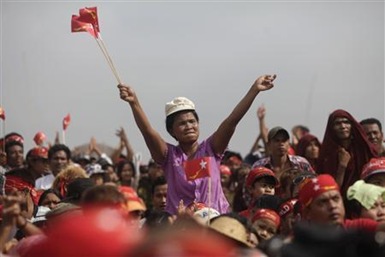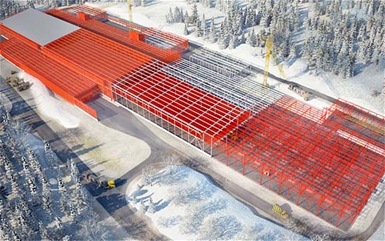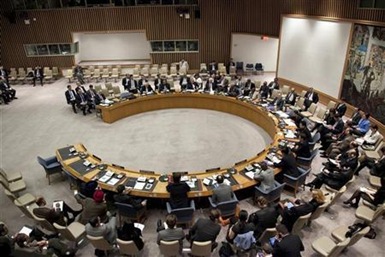 The U.S. Treasury on Tuesday relaxed sanctions on Myanmar to permit financial transactions to support certain humanitarian and development projects in the country as it moves ahead with democratic reforms after decades of military rule.
The U.S. Treasury on Tuesday relaxed sanctions on Myanmar to permit financial transactions to support certain humanitarian and development projects in the country as it moves ahead with democratic reforms after decades of military rule.
The Treasury's Office of Foreign Assets Control issued a general license authorizing financial transactions for a range of not-for-profit projects and programs in areas such as good governance, health, education and sport.
"We are taking this step today to support a broader range of not-for-profit activity in Burma by private U.S. organizations and individuals to promote increased cooperation between the Burmese and the American people," a senior Treasury Department official said.
The Obama administration announced this month that it planned to gradually ease certain sanctions on Myanmar, steps that could eventually see bans lifted on U.S. companies investing in or offering financial services to the resource-rich Southeast Asian nation.
The move on sanctions follows a dramatic series of reforms in Myanmar, where Nobel Peace Prize laureate and pro-democracy icon Aung San Suu Kyi won a seat in a parliamentary by-election this month that yielded a landslide victory for her party.
"These (steps) were action for action in response to what we viewed as very positive parliamentary elections," State Department spokesman Mark Toner told a news briefing, adding that additional measures would be forthcoming.
The Treasury's announcement marked the first of a planned series of modest steps to unravel the complex web of U.S. sanctions that have contributed to the country's isolation and driven it closer to its powerful neighbor, China.
The United States has said it will name an ambassador to Myanmar after an absence of two decades, set up an office of the U.S. Agency for International Development there and support a regular U.N. Development Program operation in the country.
Future steps to ease sanctions could eventually open the door to U.S. investment in Myanmar's agriculture, tourism, telecommunications and banking sectors, U.S. officials say.
But U.S. officials say they want to see clear evidence of further reforms, including the release of all political prisoners, concrete steps toward national reconciliation, especially with ethnic groups that say they have long been oppressed by the central government, and an end to any military ties to North Korea.
Secretary of State Hillary Clinton, in a statement marking Myanmar's New Year Water Festival on Tuesday, said the last year had seen the country embark "on a historic new path toward democracy and economic development."
"We look forward to deepening cooperation on a wide range of issues that promote democratization and national reconciliation, from increasing access to education to expanding health care and encouraging a vibrant civil society," she said.
Pro-democracy advocates have urged the United States to move cautiously, saying sanctions are an important tool to maintain pressure on Myanmar's government to follow through on pledges of greater democratic openness.
"We need to carefully utilize the sanctions we have by gradually easing them. Major sanctions ... should be the last ones to touch," said Aung Din, president of the U.S. Campaign for Burma.
(additional reporting by Paul Eckert; Reporting By Andrew Quinn; Editing by Eric Beech)
Reuters



